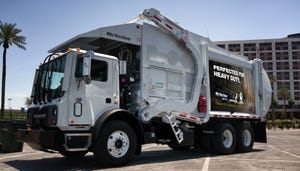legislation: EPLI: Premium Protection Against Employee Lawsuits
February 1, 1998
A jury returned a $250,000 verdict against a Midwestern hauling firm for employment discrimination. It turned out to be the first - and last - court judgment against the company: Shortly thereafter, the owners filed for bankruptcy.
Such a scenario is why many small- and mid-sized companies are considering employment practices liability insurance (EPLI). The coverage protects a business from a variety of lawsuits filed by current and former employees.
EPLI policies typically cover "wrongful acts" that include: * dismissal,
* breach of employment contracts,
* violation of employment discrimination laws,
* failure to employ or promote,
* negligent evaluation,
* invasion of privacy, and
* infliction of emotional distress.
However, most policies do not cover punitive damages or liability for not paying an employee for overtime.
Because the policies are relatively new and can be expensive, employers have been slow in adopting EPLI coverage. Nevertheless, employment law specialists think it's a good idea. "It is something I would recommend," says a Seattle employment lawyer. "On the whole, employers need to get it if they can afford it, [but should] ask specific questions, so that they are sure of what they are getting."
Despite a slow start, more than 60 insurance companies now offer some kind of employment practices coverage - sometimes as free-standing policies and sometimes tacked on to comprehensive liability insurance.
The property/casualty insurance industry, through Insurance Services Office (ISO), New York City, plans to present a standardized EPLI program to state insurance officials throughout the country in April. ISO's statistical and underwriting information is used by insurers, government regulators and other organizations. Indeed, many insurers build their coverage programs using ISO's standardized policy language.
"We developed this program because from all indications ... employers will need this ... coverage for the foreseeable future," says Christopher L. Guidette, an ISO spokesperson. "Also, it will be a profitable line for insurance companies."
In 1995, the sexual harassment suits filed accounted for two and a half times the number filed in 1990, according to insurance industry data. Meanwhile, the median compensatory award in 1995 for a garden-variety wrongful termination claim exceeded $200,000, nearly a 50 percent increase over the previous year and more than three times the corresponding award in 1989.
Law firms are partnering with insurance brokers in offering EPLI programs to businesses. To start, the firm conducts an employment practices risk review and analysis, which is intended to reduce the employer's potential exposure. After the company implements any recommended changes in employment practices, the underwriters, which often pay for the risk review, can offer a broader form of coverage than otherwise available.
Before the federal civil rights laws were amended in 1991, claimants in job-related lawsuits could only win back pay and an injunction. Consequently, employers did not encounter the number or severity of claims that would cause them to seek insurance coverage.
After Congress passed the Civil Rights Restoration Act of 1991, employment litigation rose sharply as companies faced both compensatory and punitive damages. Moreover, claimants now could have their cases decided by juries. This prompted employers to ante up the premiums for EPLI coverage while insurers, for their part, learned how to quantify their risks.
Thus, new products emerged, coverage expanded and premiums declined. Still, the costs of policies can vary considerably by region and industry. For example, the premium for coverage up to $1 million could range from $15,000 for one employer to $75,000 for a similar business located elsewhere.
Besides coverage for its defense costs, an employer should look for policies that pay the plaintiff's legal fees, which often can amount to as much as the jury award itself.
Smart companies conduct self-audits of their employment practices, trying to prevent problems and confrontations before they occur. But even exemplary employment and workplace standards can be undermined by human error or indifference. For this reason, EPLI policies can soften the blow.
1. What are paper recycling's key benefits?
a. it reduces the need for raw materials
b. it uses less energy than producing a new product
c. most paper is recyclable
d. all of the above
2. How many pounds of trash does the average American produce each year?
a. 500
b. 1,000
c. 1,600
d. 2,000
3. What is recycling's greatest economic benefit?
a. it uses less energy than producing a new product
b. it generates less waste
c. it conserves natural resources
d. it provides job opportunities
4. How much oil would it take to contaminate 1 million gallons of fresh water (one year's supply for 50 people)?
a. 1 gallon
b. 50 gallons
c. 100 gallons
d. 200 gallons
5. What can you put into a residential compost pile?
a. beans
b. poultry
c. grease
d. none of the above
1 - D. Paper makes up approximately 38 percent of the U.S. solid waste stream.
Factoid: It can take up to a half a million trees to produce our Sunday newspapers each week.
2 - C. According to the U.S. Environmental Protection Agency, the average American discards approximately 4.4 pounds of garbage every day.
3 - D. Although all of the answers are benefits of recycling, creating jobs directly affects the economy. In fact, for every 10,000 tons of material recycled, 32 jobs are created.
4 - A. This is the amount you get from a single oil change: Almost 50 percent of the nation's automotive oil is changed by do-it-yourselfers. Of the oil changed, about 220 million gallons is disposed of improperly.
5 - D. Also avoid waste from any meat-eating animals, fat, bones, vegetable oils and dairy products. Composting regularly reduces garbage volume by about 25 percent.
Questions courtesy of the National Recycling Coalition (NRC) and the Steel Recycling Institute (SRI).
For more information, contact: SRI, 680 Andersen Drive, Foster Plaza 10, Pittsburgh, Pa. 15220-2700. (800) 876-7274. Fax: (412) 922-3213. Web site: www.recycle-steel.org. Or, NRC, 1727 King St., Ste. 105, Alexandria, Va. 22314. (703) 683-9025. Fax: (703) 683-9026.
About the Author(s)
You May Also Like




